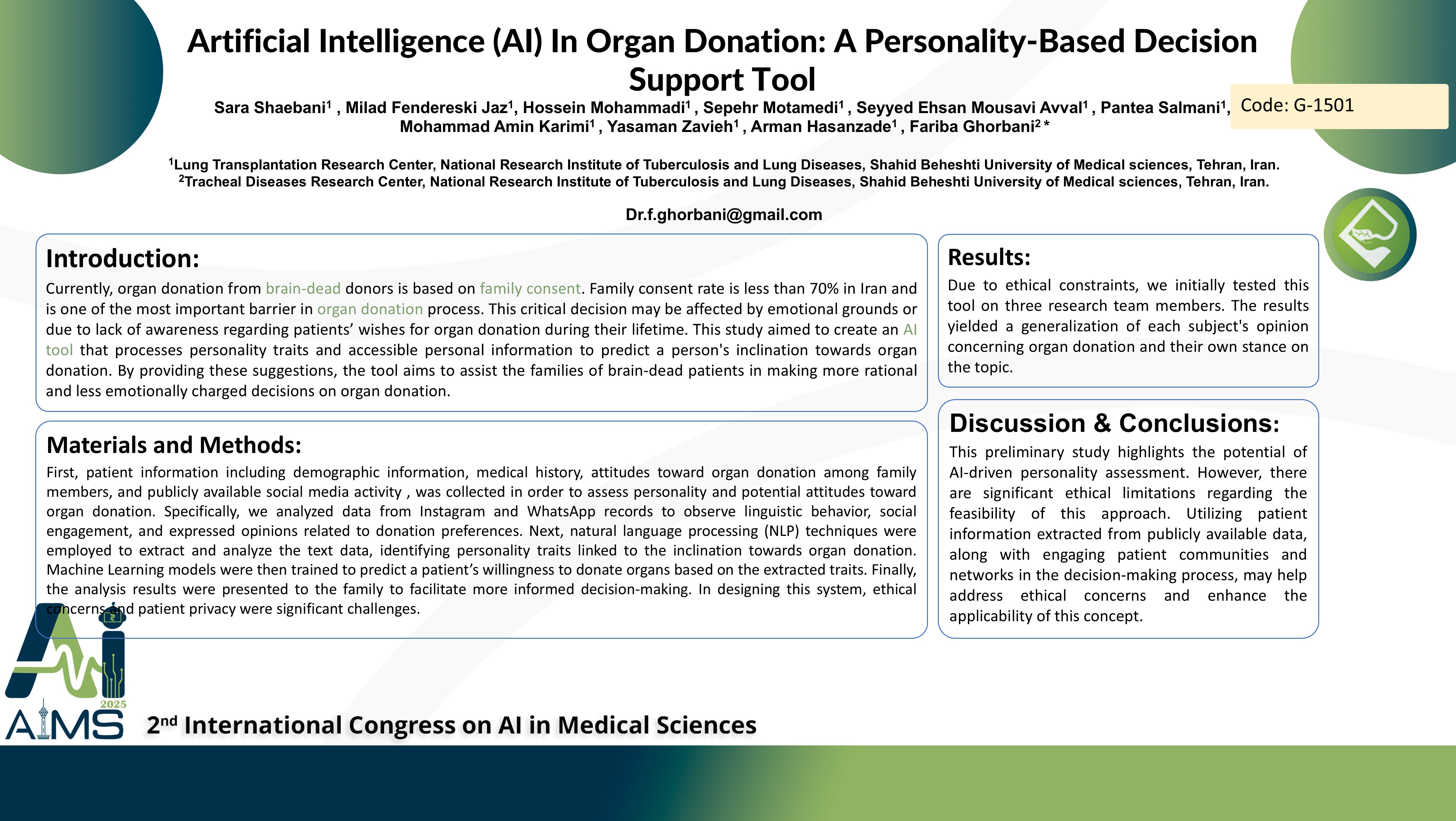Artificial Intelligence (AI) In Organ Donation: A Personality-Based Decision Support Tool
Code: G-1501
Authors: Sara Shaebani, Milad Fendereski Jaz ℗, Fariba Ghorbani *, Hossein Mohammadi, Sepehr Motamedi, Seyyed Ehsan Mousavi Avval , Pantea Salmani, Mohammad Amin Karimi, Yasaman Zavieh, Arman Hasanzade
Schedule: Not Scheduled!
Tag: Intelligent Virtual Assistant
Download: Download Poster
Abstract:
Abstract
Background: Currently, organ donation from brain dead donors is based on family consent. Family consent rate is less than 70% in Iran and is one of the most important barrier in organ donation process. This critical decision may be affected by emotional grounds or due to lack of awareness regarding patients’ wishes for organ donation during their lifetime. Aims: We aimed to create an AI tool that processes personality traits and accessible personal information to predict a person's inclination towards organ donation. By providing these suggestions, the tool aims to assist the families of brain-dead patients in making more rational and less emotionally charged decisions on organ donation. Methods: First, patient information including demographic information, medical history, attitudes toward organ donation among family members, and publicly available social media activity , was collected in order to assess personality and potential attitudes toward organ donation. Specifically, we analyzed data from Instagram and WhatsApp records to observe linguistic behavior, social engagement, and expressed opinions related to donation preferences. Next, natural language processing (NLP) techniques were employed to extract and analyze the text data, identifying personality traits linked to the inclination towards organ donation. Machine Learning models were then trained to predict a patient’s willingness to donate organs based on the extracted traits. Finally, the analysis results were presented to the family to facilitate more informed decision-making. In designing this system, ethical concerns and patient privacy were significant challenges. Results: Due to ethical constraints, we initially tested this tool on three research team members. The results yielded a generalization of each subject's opinion concerning organ donation and their own stance on the topic. Conclusion: This preliminary study highlights the potential of AI-driven personality assessment. However, there are significant ethical limitations regarding the feasibility of this approach. Utilizing patient information extracted from publicly available data, along with engaging patient communities and networks in the decision-making process, may help address ethical concerns and enhance the applicability of this concept.
Keywords
Brain Death, Organ Donation, Artificial Intelligence
